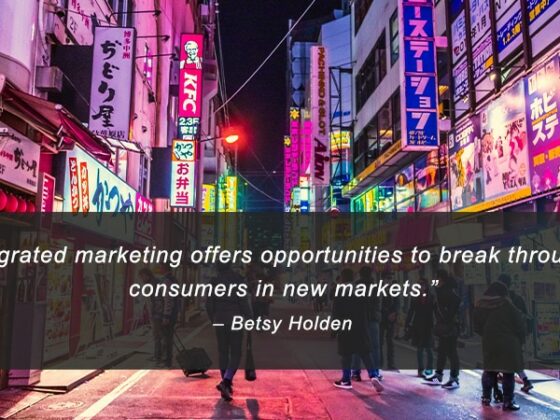Josiah:
What does a journalist turned data evangelist see happening in hospitality today? Stick around to find out. Jason Freed is the Hospitality Data Evangelist at MDO And in this episode we cover some of the throughlines and he’s been tracking throughout his career and how they impact the opportunities that he sees today. Jason, thanks for taking some time to chat. We’re kind of going through Technology Week at Hospitality Dealy with Hi-Tech, with the Hospitality Show. There’s so much going on this week. I wanted to sit down with you and get your take on hospitality technology, what you’re thinking about, what you’re excited about. I always love to start out giving our listeners just a little bit of context, getting to know the people behind the story. I know you got started in journalism and maybe we start there. I’d be curious to hear a little bit about how you got your career started and your career in journalism, and then let’s dig into hotel tech. But to kick us off, how’d you get started in journalism?
Jason:
Yeah, thanks, josiah. Thanks for having me once again. Really appreciate it. Always enjoy being on Hospitality Daily Podcast. Yeah, like you said, started as a journalist, right, so out of call I got a newspaper journalism degree Right out of college. I was in the newspaper industry until I quickly realized that that was a sinking industry and there wasn’t a ton of future in that, although I did have a great time there. So I moved over into magazines and just fortunate that the first magazine I landed at was Hotel and Motel Management Magazine And it was sort of throw your feet to the fire. Jeff Higley was my boss at the time and it was just like learn everything that there is to know about the hotel industry as quickly as you possibly can. Go to as many conferences, ask as many questions as you can, and I did and I really embraced it and I learned you know everything from cap rates to what an asset manager does, to technology, to pricing, to revenue management, and it was really that sort of technology, that intersection of technology and pricing and data that you know, really jumped out of me right away as something I was super interested in.
Josiah:
What was it about tech that caught your attention?
Jason:
You know I was always interested in tech, even before the hospitality industry, right. So one of the brief stints of newspaper I had, we had a technology page and a technology writer and companies would just send him things to try different pieces of technology You know, this was before VR but like stuff like I don’t even know what it was at the time a DVD player, a TV, a new iPod or something, and he would just try it out and he would write about it, do a review on it and send it back And I thought, man, that’s the coolest job ever, right. So then when I jumped over into hotel technology, i kind of got to do a little bit of that, right, not so much testing out the products but asking a lot of questions, learning about them, learning about, you know, which ones are useful for making better business decisions and helping hoteliers own and operate their hotels better. And that was just exciting stuff, right. And then pricing is just the evolution of dynamic. Pricing has been so interesting to watch within the hospitality industry, outside of the hospitality industry now, with concert tickets, it’s just so interesting to see the dynamics pun intended and play there and sort of how that, you know, drives to the bottom line and the profitability of a hotel.
Josiah:
Well, it’s interesting you mentioned that because you and I worked at a revenue management technology company for a while And I think people who haven’t worked in the space may not kind of appreciate all the benefits of this. But the way you think about revenue as a hospitality provider is integral to how you are able to obviously bring money into the business and then do all the cool things that we appreciate as guests right. And so there’s sort of this underappreciated aspect of revenue where it’s not just I’m trying to take as much money from you as possible, it’s like, yes, we’re trying to make sure that we offer something for everybody and create cool hospitality experiences right at the end of the day.
Jason:
You’re exactly right And I like the way you always frame that and look at that, josiah. I mean we have to make money to employ, you know, good team members to provide a great guest experience, and you know every business has to be profitable, otherwise it’s not going to work in the end. So we have to make sure that hotels are profitable. There are a lot of different stakeholders that get a cut of the revenue that comes into a hotel And yeah, i mean the margins are still thin, right, and we’re still challenged by rising labor costs and other costs all the time. So it’s, you know you’ve got a sort of an inflation cost now, you know, over the last 12 months. So you know you’ve got to be able to face those things, and one way is through, you know, raising rates. There’s other, there’s tons of other ways to make money at a hotel. Most recently, we’ve been looking at, outside of rooms, all the ancillary outlets, and you know how to take advantage of those for generating revenue opportunities and profitability opportunities. So yeah, it’s, i mean it’s a necessary thing you got to do as a business owner.
Josiah:
I want to circle back to that because there’s interesting things going on there, but if we could just fast forward a little bit in your own career journey to the spring of 2020. And I remember you and I, big on the phone And this was a couple of weeks into you know, the COVID lockdowns that were going on around the world, and I’d actually left San Francisco as in Colorado, and I remember walking down this dirt road and you and I were on the phone and everybody was trying to figure out what do we do right? And what you did is you were pulling all of your career experiences to offer the industry a resource on how to navigate this with hotel recovery. And I wonder if you could just briefly speak to that and what you did with that project.
Jason:
Yeah, that was such an interesting time. I mean, i was at a transition in my career. You and I had worked together at Dueto. I think you had already left Dueto, i was, i had just left Dueto right before the beginning of the pandemic at the end of 2019. And then I love hotel technology, so I wanted to stay in the industry somehow. So what I did is I launched a contract content marketing company where I was working with a number of hotel technology companies, helping them build their content program and really talk to innovative hoteliers who are doing fun things with technology. So, anyway, right around that time, three months after you know I had launched that company, covid hit and it was just like wow. You know, first thing to go is contract workers And you know hotels didn’t need a lot of marketing at that time. Hotel technology companies didn’t need a ton of marketing at that time. So I thought you know how can I stay in the industry and how can I help? And I put together the idea for a hotel recovery 2020 and I threw a website together and threw a daily newsletter together and you know it took off pretty quickly. We’ve got to to your point. It was the intention was to be a resource, right. How do we navigate through this challenging times? How do we bring all the data from the industry together to really sort of understand what’s going on? It was changing, as you know, day to day And if you can remember that time, i mean I thought it was going to be a three month project, right, i thought it was going to be something that COVID is going to be around for a little bit. It’s going to go away and you know we’ll all get back to our normal lives And it turned it up. It ended up being a two year project where it was you know. it went through a lot of phases and a lot of different styles of newsletter, but in the end I was really proud of it. It was you know. I built a lot of partnerships and networks and networking opportunities through that and probably wouldn’t be where I am today if it wasn’t for that.
Josiah:
Well, hats off to you for using that time to to give back to, you know, the hospitality community, and there’s countless hospitality leaders. I knew that religiously read that every day. We’re trying to figure out how do we you know, operate, how do we take care of people, how do we provide hospitality? It’s a massive amount of work. I think people don’t understand and appreciate the amount of work behind something like that, but that became a go to source People across the industry top executives, you know, ceos, leaders of these large brands. You know, up and down the ecosystem. We’re, we’re reading this And it’s interesting to me. So, you know, hats off to you for doing that. But it’s interesting to me in retrospect now, you know, looking back, we’re starting to see people are saying you know that, that you know 2020, 2021 was actually really pivotal when it comes to hotel technology because it accelerated trends. It really changed the way a lot of hotels are thinking about technology. So you had a front row seat in that change And I’m curious anything you observed in that span of time that affects or affected hotel technology and kind of what you’re seeing today.
Jason:
Yeah, i think you’re 100% right. It accelerated a lot of innovation that hotels were curious about and, you know, considering but really hadn’t pulled the trigger on. It was time for them to mount, to pull the trigger on. I always like to think of hospitality technology in two sort of areas front of house and back of house, because in any situation there’s a front of house application and a back of house application. And the front of house, you know, really, is that guest facing technology, whether it’s in the guest room or whether it’s when they enter the lobby and you know they go to the checkout desk, how are they checking in, mobile check in, how are they getting to their room? You know that whole guest journey. And then on the back end. so on the front end, you know the innovation needed to happen fast because of the circumstances in terms of safety and security, we had to communicate with the guests in a completely different manner. right It was. it wasn’t face to face anymore. You know, if it was, there was plexiglass and you know I think it accelerated that whole guest communication and making more impactful touch points with the guest, although I do find that we’re sort of going back to how it was before and we can get to that later. I think we could have maybe accelerated that a little step further or continued some of the stuff we were doing, and maybe it’s taken a step back since COVID, but then again. but on the back end it was all about efficiency, right? I mean, the industry has never went through anything like that before, where we just had to let go so many people and you know we’re operating hotels with skeleton crews GMs were running the front desk and cleaning rooms and checking people in And I think we did learn from that and we learned that we can operate hotels more efficiently, be more cost effective in our hotel operations, do some things differently, monitor labor costs much better. So I think we’ve learned on the front end and on the back end.
Josiah:
I think you know to that point. one of the things that you referenced earlier that I want to circle back to is kind of some of the revenue opportunities here And just to set the stage a little bit further, you decided to take this role where you’re a data evangelist right now at MBO and really diving into telling the stories of what’s possible with data. We had a fantastic conversation with Billy at Sea Island Resorts. I’ll make sure to link to in the show notes. People have to check that out. It’s such a great conversation So we did kind of a deep dive with him and his property. But what is a data evangelist? and tell me a little bit why you took this role and are focused there.
Jason:
Yeah, so I was super excited to join MBO in October of last year, so I’ve been there nine months now. It was an awesome opportunity to really dive into the data and start talking about the data, using the data to build stories right And to build best practices, talk to as many hoteliers as I can about how they’re using data to make better business decisions, and that’s what I’ve been doing for the past nine months And it’s been awesome. I think that’s what an evangelist does is, you know, takes that story on the road, spreads the word about, about how you can use data to make better business decisions. And you know I’m going to be diving into. So MBO has got a treasure trove of data that I can dive into. Right, we’ve got. We really focused on two areas. One is digital document management, so it’s like that paperless night audit process. So it’s all those, as we’ve talked about before, all those important documents and data that you get every night when you run the night on it. And then the second part of it is business intelligence is really taking that data and taking those reports and putting them in, customizing them to fit your needs So you can see the data you want. You can slice and dice that, however you want. I’m excited to dive into some of that data, aggregate it, use it to tell stories, but at the same time, it’s just been awesome learning about our customers and other talking to other hoteliers in the industry about how they, how they’re using data Not only rooms data, but across the across the hotel and F and B department and spa and parking. Even So, it’s been really cool to really sort of get my hands dirty and dive into that data.
Josiah:
What fascinates me about your work is you do dive in deeply and it’s more than just he. We made this cool product. Let me think about all the ways to communicate it. But you mentioned night audit. Right, and a little while back we were talking about the role of the night auditor, but you were giving me examples of actually watching a night auditor sitting in the hotel lobby and then watching this person And it opened my eyes so much. And I was talking to David Kong, the former CEO of Best Western a few days ago, and he was actually. He went down this whole thing of telling me about his role as a night auditor And I didn’t even so. You kind of see again and again and again these leaders are kind of in this role, but it’s I just bring that up from the example of kind of you’re in the details of the hotel operation, you’re observing these people, you’re kind of seeing these things And I guess my question for you would be as you’re, you’re deeply embedded within your clients hotel operations. What are you seeing now in observing that excites you the most with, with hotel technology?
Jason:
Again, i got to go, i got to say guest facing, right in back office. I got to kind of separate the two. On the back office side, i’m seeing a lot of evolution. I’m seeing a lot of adopting new, new data strategies, new strategies to really look at the data, to make to make smarter decisions, really diving into that, really bringing the data from all the sources together into a single place where you can visualize it On the front end. I think we haven’t made progress in a lot of areas that I think we could, and I alluded to this a little bit earlier. Some of that customer facing sort of guest journey stuff, just when I’m out on the road, when I’m staying at hotels, it hasn’t really translated into the real world. I mean, i think we’ve been talking about personalization and, you know, getting a 360 degree view of your guest for a decade now. Right, and I still have to walk into a hotel and they don’t know who I am and they don’t know my preferences And they, you know they haven’t sent me an email two days before with how to check in, how to bypass the desk, how to go right to my room and unlock the door, and we say a lot that we’re working on that, right, and I know we’re making some progress, but I’m not sure how much it has translated to the real world. And then I mean, that’s just the beginning, right, so there’s evolutions to that process. And then we start talking about the connected trip, right, where, you know I’m, my airline tickets and my hotel reservations and my car, my transportation access, is all in the same app, right, and it’s all sort of like from one to the other and you know, the hotel knows when I’m going to arrive and the hotel knows, you know all this stuff. But when my flight gets in, when my flight is delayed, that’s all stuff that we talk about. That we’re going to try to get to, but I don’t think we’ve taken the right steps, enough steps yet to get there. And then, you know, like, the next evolution of that and it is something that we’re already talking about is AI, right, ai and the travel planning process. And you know we’ve already talked, we’ve already said that you can, you know, ask ChatGPT to give you a travel itinerary. I haven’t done that yet. I don’t know how good it is yet, but if it is good, and I’m sure it’s going to get better, how does that force us to evolve the hotel distribution process right. Instead of getting in front of getting your rooms on Google and getting your rooms on Expedia and getting your rooms on bookingcom bookingcom you now want to get them in front of whoever’s providing this AI platform where it’s whether it’s ChatGPT or whoever. So I think there’s a lot of progress to make on the guest facing side, on the back end side too, you know, i think we’re doing much better with labor management. We talked about that a little bit earlier. Cost cutting we’ve gotten a lot better since COVID. I’m always talking about data and aggregating data and using data to make better business decisions, and the evolution that we need to make there is moving from sort of descriptive analytics, which we’ve always given, to predictive analytics, which we’ve made some progress in, and the next evolution is prescriptive analytics right. So it’s giving you the data you need, telling you you know how to predict what’s going to happen in the future, but then taking that insight and telling you what to do with it, or not even telling you what to do with it, but doing it, but taking that next step and actually, you know, changing your rates because X happened in event. You know event happened in your area, changing your strategy, basically based on analytics that you’re observing.
Josiah:
That’s great, and this week is a big week for the hospitality industry, with trade shows going on. There’s the hospitality show, there’s high tech, there’s other things going on, so this is the week to maybe dive into this for our listeners and kind of think about where are some opportunities to improve, to move beyond. This is something we just keep talking about too. We’re going to make some real change. I guess my last question for you would be you know, with all that being said, what advice would you have for listeners in terms of shopping for or evaluating technology options, because you’ve seen the ecosystem from every possible angle, right As a journalist covering the space to someone who’s building these tech companies, how should our listeners approach this week and figuring out who might be a good partner for them?
Jason:
Well, the first question I always ask is who do you integrate with and how you know? how are your integrations set up? Integrations are such an integral part of all of this moving forward, all of the hospitality technology landscape moving forward, because this data that we keep talking about has to be shared from one system to another. There are so many systems that you need to run a hotel. They all need to be linked and on the same page. So I mean that’s one of the questions that you need to ask What you know. I think the first question is what PMS, what PMS is do you integrate with? That’s still the critical question in the hospitality industry. But, like I mentioned, we’re now starting to be able to pull data from all those other systems, from POS, from GSS, from SDR data from F&B, spa management, all those sources And they need to be integrated. Well, we’re making progress there. I think the industry is, you know, providers are opening up their APIs and allowing, you know, other third parties to access their data. So we’re making a lot of evolution, a lot of progress there. You know somebody that it’s the industry. Who are they working with today? Right, show me some examples of who you’re working with today And I think that’s some of where my work comes in is building those success stories and those case studies. They’re so fun to talk to hoteliers about how they’re using these products to improve their daily lives and their daily in their roles. So ask if you you know company has some examples of those that they can show you. And then it’s all about building relationships And it’s all about having trust that this provider is going to work for you, that you’re not just going to be another number to them, that you know that you’re going to build something together, that they’re going to take your input And they’re going to build their product or they’re going to deploy their product in the way that you need it deployed to solve your solutions.





